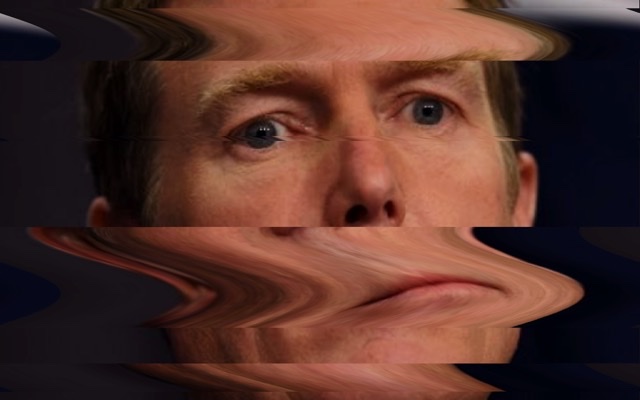By his response last week to the Federal Court’s finding that Immigration Minister Alan Tudge engaged in criminal conduct by detaining an asylum-seeker for five days in defiance of an order by the Administrative Appeals Tribunal (AAT), Christian Porter has shown himself unfit to be federal Attorney–General.

Porter’s response condoned Tudge’s conduct. Porter said that Tudge’s action was “in effect government undertaking its duties through the minister as a matter of policy … the Minister clearly rejects [the court’s] conclusions”. And so the First Law Officer of the Commonwealth excused the Minister’s – the Minister was implementing Government policy, and, implicitly in Porter’s view, policy trumps the criminal law and trumps the orders of courts or tribunals.
That is an appalling statement and an appalling state of affairs. An Attorney–General’s highest duty is to uphold the law. He is responsible for the administration of justice federally. His duty is to support the courts, and respect for them and for their rulings. Those are the very foundation stones of the Rule of Law in Australia.
Like no other ministers, attorneys–general are trusted by our constitutional system with duties that need to be exercised independently and responsibly.
Those responsibilities include in appointing judges and tribunal members. Porter and his predecessor, George Brandis, have stacked the AAT with Liberal Party cronies, many of whom have no legal qualifications. In September last year, Crikey reported that 65 AAT members were former Liberal Party staffers, former Liberal/National politicians, party donors, members, unsuccessful Liberal candidates and Liberal government employees; 24 of those have no legal qualifications. This politicisation of the AAT under the present Federal Government is unprecedented. Porter appointed the head of a Perth bus company with no law or tertiary qualifications to the AAT after the man allegedly lent buses to Porter that he used as travelling billboards during last year’s federal election. According to Crikey, the Liberal Party only agreed to pay for the buses after there was publicity.
Given the extent of stacking of the AAT, Porter and Tudge were probably surprised that the AAT had ruled against the Government in the refugee decision that Tudge disobeyed. (It is hard for Australia to maintain that it has a fair refugee system if the AAT bench is stacked when it reviews decisions made by Peter Dutton’s Department of Home Affairs. To block a refugee application, all a migration official, Refugee Review Tribunal or AAT member has to say is that they disbelieve the applicant).
As we have learned through the Collaery and Witness K cases, as Attorney–General, Porter also has very important powers to get people prosecuted for very serious offences, and to prevent the Government’s allies – like Tudge, John Howard, Alexander Downer and Rupert Murdoch – from being prosecuted. For some crimes, he has absolute discretion either to consent or not to prosecute.
As we are seeing in those same cases now running in the ACT Supreme Court, he can also severely weigh the odds in favour of a conviction by signing so-called conclusive Ministerial certificates – keeping evidence that would assist the accused out of court – even if that evidence is actually of no security concern at all; by forcing trials to be held in secret; and by bullying the judges sitting on such cases.
A person who responds as Porter has to Tudge’s crime is not fit to exercise these powers. The role requires impartiality, which Porter does not demonstrate.
And what of Tudge? He was one of three federal Ministers dragged before the Victorian Court of Appeal in June 2017, together with Health Minister Greg Hunt and Assistant Treasurer Michael Sukkar to answer why they should not be prosecuted for contempt of court for attacking the Victorian judiciary. The summons from the Court’s judicial registrar said: “The attributed statements [by three federal Ministers] appear to intend to bring the court into disrepute to assert the judges have and will apply an ideologically based predisposition in deciding the case or cases and that the judges will not apply the law … The attributed statements, on their face, also appear to be calculated to influence the court in its decision or decisions, and to interfere with the due administration of justice in this State.”
On that occasion, Tudge and the others did not appear personally to face the Court. Rather, counsel appeared for them, withdrew their remarks and belatedly apologised to the court. The Commonwealth Solicitor-General, Stephen Donaghue, told the court each apologised “unreservedly” for the comments. “We intend to exercise great care in the future,” Mr Donaghue said. The three ministers thereby escaped punishment.
Then Prime Minister Malcolm Turnbull, Attorney-General Brandis and Minister Simon Birmingham had each come out in support of the three miscreants, showing how much an orphan the Rule of Law is on the conservative side of federal politics.
Tudge seems to have forgotten his close shave of just three years ago. From Porter’s statement last week it also seems that Tudge’s latest crime won’t even get to court. We live in dark times for the Rule of Law.
Lawyer, formerly senior federal public servant (CEO Constitutional Commission, CEO Law Reform Commission, Department of PM&C, Protective Security Review and first Royal Commission on Intelligence and Security; High Court Associate (1971) ; partner of major law firms. Awarded Premier’s Award (2018) and Law Institute of Victoria’s President’s Award for pro bono work (2005).

Comments
8 responses to “Christian Porter has shown himself unfit to be federal Attorney–General”
My problem with Porter is he is not over his portfolio. I rang his office and his staff did not even know he was in charge of civil celebrants. The country is currently flooded with celebrants who, as a consequence, do very few ceremonies. Apart from cutthroat competition on prices for ceremonies, this means that most have no opportunity to develop a skillset, or maintain interest. So easily fixed, but all letters go straight to the public service who write inane replies. The last letter I received told me they are not entering into future correspondence with me because they have already decided that their running of the system is OK.
Christian Porter has shown himself unfit to be Attorney-General, you argue, Ian. He is probably not the equivalent of William Barr in the US but his ideology, one could argue, pushes legality to the edges in certain contexts. Rights of refugees/use of phones etc, proceeding with prosecution of Bernard Calleri etc illustrate this. But in terms of a Federal ICAC he could still do something significant – create one with teeth – but this may be unlikely based on your article. In NSW at the moment Liberal MP Daryl Maguire is being currently investigated for bringing Louise Waterhouse to a private meeting to lobby for the lucrative rezoning of the racing heiress’s land near the Western Sydney airport – a move that could have helped Maguire personally earn $690,000. In another life, I knew Daryl to be a very decent and caring politician in Wagga Wagga. All around the world, corruption amongst politicians, bribery, back-handers, perks etc are increasing. I know Scott Morrison repudiated Michael McCormack’s view that the money paid for land in Western Sydney would be a good deal in the future because the price paid was bizarre – something along the lines of Barnaby’s payment for water etc. The price paid for the land, the lack of transparency etc: is any of this new? Sports rorts, problems with the ALP and the Libs around membership manoeuvres etc – all cry out for oversight. As the A-G, Christian Porter could have considerable influence in shaping the form that a Federal ICAC might take but a crazy-brave conversion is unlikely- but not impossible!
Would you want him to do it given his track record? I wouldn’t
This article raised serious concerns about judicial independence. The statement “in effect government undertaking its duties through the minister as a matter of policy”, contradicts earlier practice in ‘Immigration’ Tribunals of the 1990s where the laws of parliament transcend ministerial policy (PAM).
Tribunal members should not be answerable to the Minister when they make a decision, but their decision should be bound by the laws of parliaments. Hence it is not unexpected that the AAT sometimes finds a decision against the Minister and that shows independence of the judiciary.
However, I disagree with the notion that non-legal persons should not be appointed at the Tribunal level as this practice was introduced in the 1990s under PM Bob Hawke and Immigration Minister Bolkus. There was wisdom in making such appointments as it factors in the other social factors other than just law in a non-adversarial system where the rule of evidence is not that strict. This is not the first time immigration ministers ended up in the High Court beginning with Minister Ruddock in the early 2000s. For some Tribunal cases, it seems like “monkey sees monkey do” rather than putting the blame on all non-legal Tribunal members.
“. the judges have and will apply an ideologically based predisposition in deciding the case or cases…”
Much the same could be said about the selections of Brandis and Porter in stacking the AAT.
Will Mark Dreyfus pursue Porter and seek an unequivocal statement from the later as to whether Ministers are bound by court decisions ?
If he won’t – why not ?
If he does consequential questions are likely to arise from response from Porter.
Given Dreyfus’ enthusiasm for taking the easy way out when the politics look uncomfortable for him and the ALP (for example, his recent cave-in on compulsory mandatory sentencing for child abuse offences) god knows what he will do with this. One of the most frightening features of the way in which Australia is walking away from the rule of law is the apparent reluctance of the current opposition to make any sort of stand against it.
Alan Trudge (introduced the demeaning Cashless “Welfare Card” – irony noted – attended the kind of school currently being noted in the press for ugly behaviour – Haileybury in Melbourne – check out its connections to Chris Lilley’s “Ja’ime: Private School Girl”) and Charles (Chuck) C(hristian) Porter – (grandson of the Qld politician and monster of First Nations people in that state 1977-1980) – he comes from “good” (irony highlighted) stock – grand-dad serving most of his time under the “force-for-good” (more irony intended) Johannes Bjelke-Petersen! Background will out!